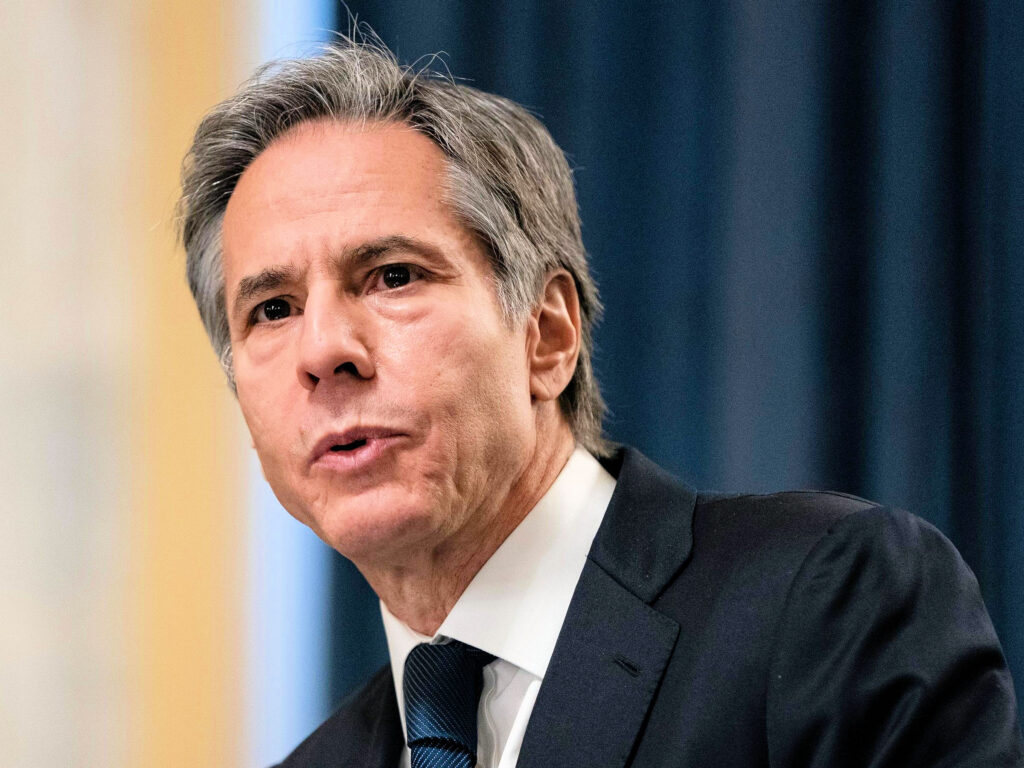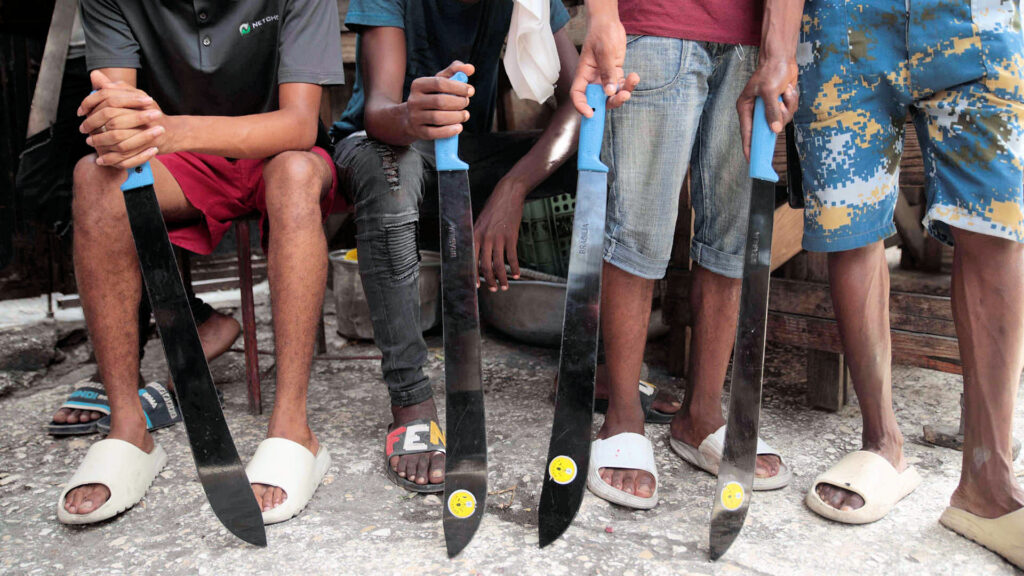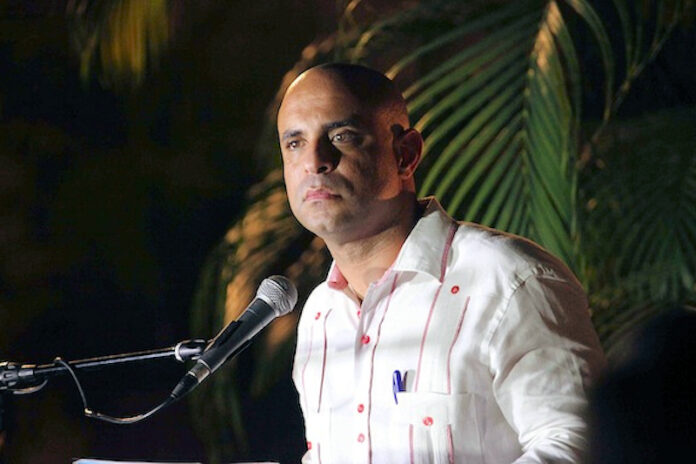On Jun. 2, the U.S. State Department sanctioned former Haitian Prime Minister Laurent Lamothe, who served under President Michel Martelly from 2012 to 2014.
“Today, I am announcing the designation under Section 7031(c) of former Haitian Prime Minister Laurent Lamothe for his involvement in significant corruption while in office,” Secretary of State Antony Blinken wrote on Twitter. “We are committed to promoting accountability for corrupt officials in Haiti.”
“Specifically, Lamothe misappropriated at least $60 million from the Haitian government’s PetroCaribe infrastructure investment and social welfare fund for private gain,” Blinken elaborated in a statement on the State Department’s website. “Through this corrupt act and his direct involvement in the management of the fund, he exploited his role as a public official and contributed to the current instability in Haiti.”
The only sanction Washington took was to render “Lamothe generally ineligible for entry into the United States.” The measure was taken just days after Lamothe had traveled from his home in Miami, Florida to Egypt on a business trip.

On Jun. 3, Lamothe issued a statement saying that he “vehemently rejects the U.S. Department of State’s recent designation” against him, claiming that “Blinken’s decision is not based on factual proof but repurposed hearsay dating back to Mr. Lamothe’s time as prime minister from 2012 to 2014.”
Lamothe even cited a November 2022 State Department report to Congress as saying “that there was no ‘specific disappearance of funds’ identified in a PetroCaribe report.”
Lamothe said that the State Department had “negligently used” a “dubious and politically-charged PetroCaribe report,” without specifying which of two Senate reports that charged him with malfeasance he was referring to. He went on to say that “over the past nine years, five independent audits from Haiti’s Supreme Audit Court (CSCCA), the Anticorruption Unit (ULCC), and the Venezuelan government’s PDV CARIBE thoroughly scrutinized Mr. Lamothe’s financial management and conclusively found no wrongdoing attributed directly to him.”
Laurent Lamothe is Washington’s sacrificial lamb to dupe the Haitian people and liberal opposition that it is a bonafide, reliable ally
Blinken’s announcement came a few days after a series of meetings between top Biden administration officials and leading Haitian opposition figures who are seeking Washington’s support and blessing to replace de facto Prime Minister Ariel Henry. On May 30 and Jun. 1 respectively, National Security Advisor Juan Gonzales and Brian Nichols, Secretary of State for Western Hemisphere Affairs, met with Magali Comeau Denis, leader of the Montana Accord opposition coalition, and Pierre Espérance, a Montana advisor and head of the Haitian National Network for Human Rights (RNDDH).
Comeau Denis and Espérance, like Henry, both played important roles in the 2004 U.S.-orchestrated coup d’état against President Jean Bertrand Aristide. Comeau Denis led protests and organized intellectuals against Aristide’s government in the lead-up to his overthrow, becoming the Culture Minister of the post-coup de facto Prime Minister Gérard Latortue. Espérance is notorious for his role in the 2004 coup, when his organization, then called the National Coalition for Human Rights (NCHR), published a report falsely accusing pro-government forces of a massacre, which paved the way for the coup and the subsequent extended jailing of Aristide’s Prime Minister Yvon Neptune and Interior Minister Jocelerme Privert.
There is great irony in Washington sanctioning a Haitian prime minister it had strongly supported to punish him for “mismanagement” of a Venezuelan solidarity fund it had strongly opposed, and this almost nine years after Lamothe has left office. In 2011, Haïti Liberté used secret State Department cables obtained by Wikileaks to reveal how vigorously Washington sought to sabotage the PetroCaribe program.
Meanwhile, Washington has brazenly stolen Venezuela’s 4,400 Citgo gas stations in the U.S. with all of their revenue and assets, a loss of hundreds of millions of dollars for Caracas. At the same time, the Biden Administration maintains dozens of sanctions on the country.
So what could be the real reason behind Washington’s move?
It is not farfetched to presume that Washington is trying to set the stage for the Jun. 11 to 13 meeting it is helping to organize in Jamaica between Henry’s government (which is reluctant to attend) and Comeau Denis’ and Espérance’s Montana Accord coalition, along with almost all of Haiti’s traditional, electoral political parties.
Jamaican Prime Minister Andrew Holness, after meeting with UN Secretary General Antonio Guterres three weeks ago, is hosting the conference to facilitate talks to find an agreement between Henry and his adversaries.
“Then the U.S. and Canada, putting Jamaica and other Caribbean countries in front, will be able to deploy soldiers into Haiti to enforce the so-called consensus,” a well-placed source in Haiti’s foreign service explained to Haïti Liberté.
“This meeting illustrates how the United States, Canada, and France, not to mention certain collaborating countries such as the Dominican Republic,… are firing on all cylinders to advance the project to occupy Haiti,” Berthony Dupont explained in the paper’s May 31 editorial. “All of this is for the sole purpose of … using their soldiers to subjugate us militarily.”
Washington is renewing its push to get troops into Haiti because it is deeply alarmed by the popular “Bwa Kale” (peeled wood) anti-gang movement that spontaneously erupted in April. Espérance, among others, has characterized the Bwa Kale movement as an action of the “Revolutionary Forces of the G9 Family and Allies” anti-crime confederation and its leader, Jimmy “Barbecue” Cherizier, who is the principal target of U.S. and now UN sanctions because he has called for revolutionary change in Haiti. The G9 has come out in full-throated support of the Bwa Kale movement but denies being its conscious initiator, saying that it is “spontaneous.”

Meanwhile, the Haitian bourgeoisie worries that the Bwa Kale movement might begin to target them instead of just the shantytown gangs that they often hire. The business elite penned an open letter on Dec. 8, 2022 calling for “recourse to external security assistance… [for] the last time in our history.”
On Jun. 1, the New York Times played its habitual role of justifying Washington’s agenda by publishing an op-ed by Dr. Jean W. Pape, a long-time Haitian collaborator with the U.S. medical establishment from the AIDS epidemic to that of COVID. “Haitians cannot overcome this crisis — the worst I have seen in my life — without foreign intervention,” he wrote.
Two days later, Times journalists Frances Robles and André Paultre published an article which argued that the Bwa Kale had reduced crime but was very dangerous in itself. “The outbreak of mob justice is worrisome, Haiti experts say, because it could easily be used to target people who have nothing to do with gangs, and could lead to an explosion of even worse violence if the gangs seek retribution,” they wrote. They then report that Espérance said “the rise of the vigilante movement… underscores the international community’s failure to address the crisis,” in other words, intervene militarily.
While the U.S. has sought to push its intervention through the UN Security Council, opposition from Russia and China has blocked it, prompting Washington to seek a way to circumvent the body.
In short, it appears that Laurent Lamothe is Washington’s sacrificial lamb to dupe the Haitian people and liberal opposition that it is a bonafide, reliable ally, whose troops can be trusted to intervene in Haiti for a third time in three decades.
But as the Haitian proverb says: “Twou manti pa fon.” The hole a lie makes is not deep.










